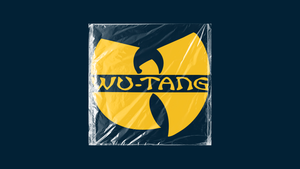Convicted fraudster Martin Shkreli has told a court in New York that the single-copy Wu-Tang Clan album he bought in 2015 was, in fact, a several-copy album by the time the original compact disc copy of the record was seized by US authorities in 2018.
The making of additional copies of ‘Once Upon A Time In Shaolin’ between 2015 and 2018 was entirely legal, he adds, and therefore the current owner of the original CD has no grounds for making a legal complaint in 2024 over the fact the extra copies are still in his possession.
When the US Marshals Service sold the original CD in 2021, Shkreli claims in a new legal filing, the law enforcement agency “made no representation that the assets transferred comprised the only existing copy of the work”.
Current owner PleasrDAO, therefore, was well aware that its purchase of the ‘Once Upon A Time In Shaolin’ CD did not “include any promise or expectation of ‘exclusivity’ or ‘uniqueness’”. In fact, “it bought a copy of a musical work that it knew was not unique” and, as a result, “cannot now claim to be irreparably harmed by the existence of its non-uniqueness”.
This is the latest chapter in the eventful story of ‘Once Upon A Time In Shaolin’, which has definitely delivered as a quirky art project, even if that delivery required the involvement of a pharma bro fraudster and tedious NFT collective.
That collective, PleasrDAO, acquired the original copy of ‘Once Upon A Time In Shaolin’ after it ended up with the US Marshals Service as part of forfeiture proceedings that followed Shkreli’s fraud conviction.
It began legal action against Shkreli earlier this year after he admitted on a livestream that he still has copies of the record. He also reportedly played some of the album on the stream.
PleasrDAO told the court “the album was supposed to constitute the sole existing copy of the record, music, data and files, and packaging”, and requested an injunction ordering Shkreli to stop exploiting the record and to hand over any copies he has of it.
In his own legal filing, Shkreli says that when he first bought ‘Once Upon A Time In Shaolin’, he also got 50% of the recording and publishing copyrights associated with the record, and the right to make private copies of the album. A right he exercised before being forced to hand over the original CD to the US authorities.
“Neither those copies, nor defendant’s copyrights, were forfeited by the forfeiture order”, Shkreli claims, meaning he “continues to have the right to use them to this day”.
Given he retains those rights - and no assurance was given to PleasrDAO by the US Marshalls Service as to the uniqueness of the CD it bought - the NFT collective’s legal claim should be rejected, Shkreli argues.
Through its legal action, he concludes, PleasrDAO is trying to “retroactively modify” the terms of its purchase of the original CD by asking the court to “impose restrictions on Shkreli’s use beyond those in the forfeiture orders”. And that shouldn't be allowed to happen.

